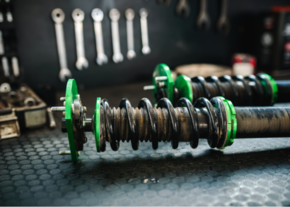
Euro 7 legislation. More restrictive but neutral limits
Simonluca Pini – Contributor Editor of Il Sole 24 Ore
The proposal affects emissions from exhausts, brakes and tyres, regardless of the type of fuel used. Stricter rules for electric cars as well
Pollution due to transport must be considerably reduced, especially in cities and urban areas. The regulation proposal for the new Euro 7 engines for cars and light commercial vehicles, and Euro VII for heavy commercial vehicles and buses, originates from this objective. The legislation will come into force from 2025 for cars and light commercial vehicles and from 2027 for heavy goods vehicles, and aims to set new limits for NOX and particulate emissions. The rules will be valid for all motorised vehicles, regardless the type of fuel and limits will also be set on the particulate matter produced by brakes and tyres. The Commission's estimates indicate there will be a reduction in total NOx emissions from cars and vans of 35% compared to Euro 6 and 56% compared to Euro VI for buses and trucks. Exhaust particulate matter will also drop by 13% for cars and vans and 39% for buses and trucks. The EU considers the carbon dioxide standards, which are already set to zero in 2035 for cars and light commercial vehicles, and the regulation on polluting emissions as complementary tools for achieving decarbonisation and the transition towards more sustainable mobility.
Euro 7, no distinction between internal combustion engine cars and electric cars
Euro 7 legislation sets emission limits for all motor vehicles as a whole. The new rules are also fuel and technology neutral, setting the same limits regardless of whether the vehicle uses petrol, diesel, electric motors or alternative fuels (E-fuels). The new rules provide for improved emissions inspections for all new vehicles by increasing the range of driving conditions covered by road tests. These will better reflect the range of conditions vehicles experience throughout Europe, with temperatures up to 45°C or for short journeys. The new regulations also set emissions limits for previously unregulated pollutants, such as nitrous oxide emissions from heavy-goods vehicles. Euro 7 will be the first standard in the world to go beyond regulating exhaust pipe emissions and set additional limits for particulate emissions from brakes and microplastic emissions from tyres. These rules will apply to all vehicles, including electric ones. Compliance for cars and vans will be checked until they reach 200,000 km or are 10 years old. The new rules will also regulate the life of the batteries installed in order to increase consumer confidence in electric vehicles. This will also reduce the need to replace the batteries at the end of a vehicle's life, reducing the need for vital new raw materials required to produce batteries
Associations hesitate
As underlined by Oliver Zipse, head of Acea, "The environmental benefit of the Commission's proposal is very limited, while the cost of vehicles increases significantly". There are also many questions from the commercial vehicles sector: “To comply with Euro VII, truck manufacturers will have to transfer substantial engineering and financial resources from battery and fuel cell electric vehicles to internal combustion engines. This will have a major impact on our transition towards zero-emission vehicles. "It's not good for the climate, it's not good for people's health and it's not good for the industry” - says Martin Lundstedt, the contact person for commercial vehicles at Acea. Many doubts have also been raised by Clepa, the association of component suppliers in Europe, which has highlighted the problems of timing and the technical and economic feasibility that needs to be dealt with to ensure that the new rules are implemented correctly.
Euro 7, no distinction between internal combustion engine cars and electric cars
Euro 7 legislation sets emission limits for all motor vehicles as a whole. The new rules are also fuel and technology neutral, setting the same limits regardless of whether the vehicle uses petrol, diesel, electric motors or alternative fuels (E-fuels). The new rules provide for improved emissions inspections for all new vehicles by increasing the range of driving conditions covered by road tests. These will better reflect the range of conditions vehicles experience throughout Europe, with temperatures up to 45°C or for short journeys. The new regulations also set emissions limits for previously unregulated pollutants, such as nitrous oxide emissions from heavy-goods vehicles. Euro 7 will be the first standard in the world to go beyond regulating exhaust pipe emissions and set additional limits for particulate emissions from brakes and microplastic emissions from tyres. These rules will apply to all vehicles, including electric ones. Compliance for cars and vans will be checked until they reach 200,000 km or are 10 years old. The new rules will also regulate the life of the batteries installed in order to increase consumer confidence in electric vehicles. This will also reduce the need to replace the batteries at the end of a vehicle's life, reducing the need for vital new raw materials required to produce batteries
Associations hesitate
As underlined by Oliver Zipse, head of Acea, "The environmental benefit of the Commission's proposal is very limited, while the cost of vehicles increases significantly". There are also many questions from the commercial vehicles sector: “To comply with Euro VII, truck manufacturers will have to transfer substantial engineering and financial resources from battery and fuel cell electric vehicles to internal combustion engines. This will have a major impact on our transition towards zero-emission vehicles. "It's not good for the climate, it's not good for people's health and it's not good for the industry” - says Martin Lundstedt, the contact person for commercial vehicles at Acea. Many doubts have also been raised by Clepa, the association of component suppliers in Europe, which has highlighted the problems of timing and the technical and economic feasibility that needs to be dealt with to ensure that the new rules are implemented correctly.
























